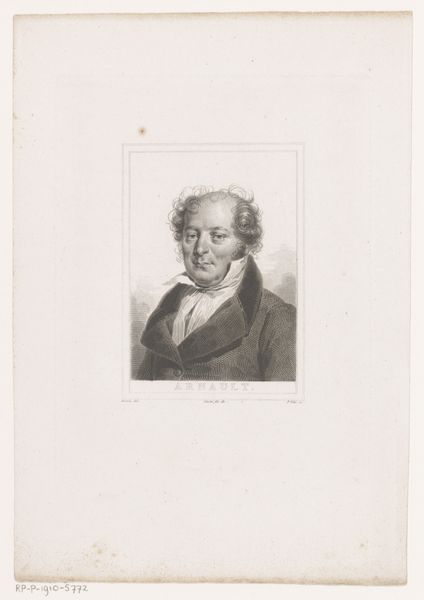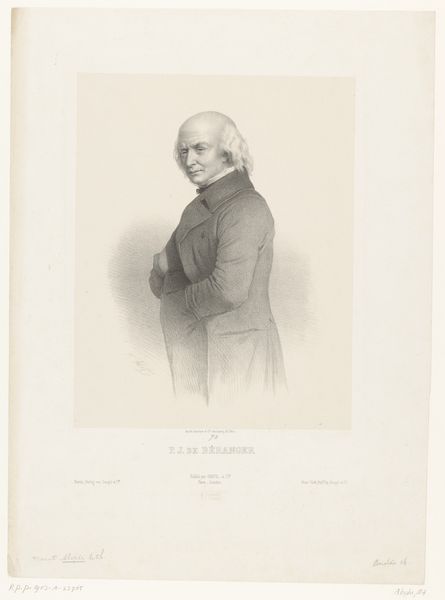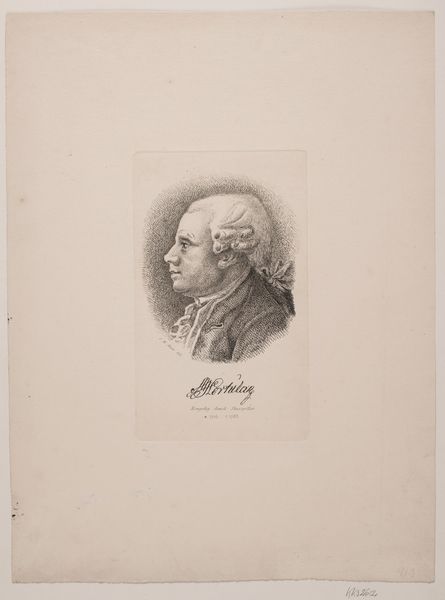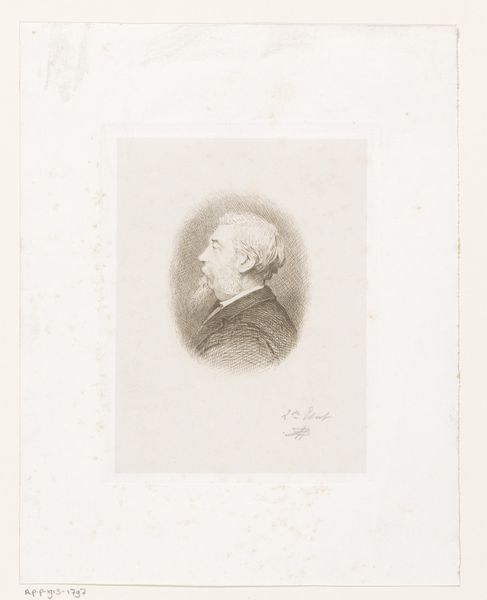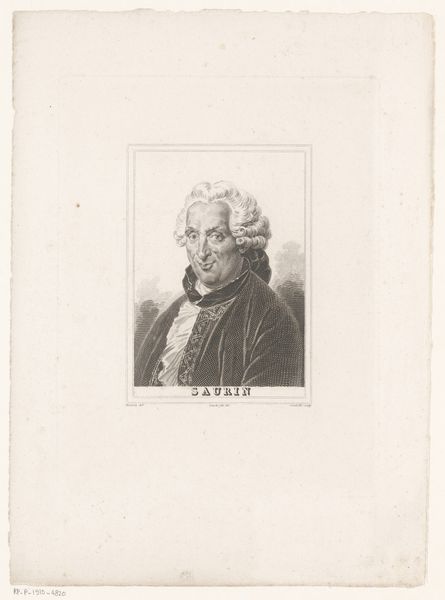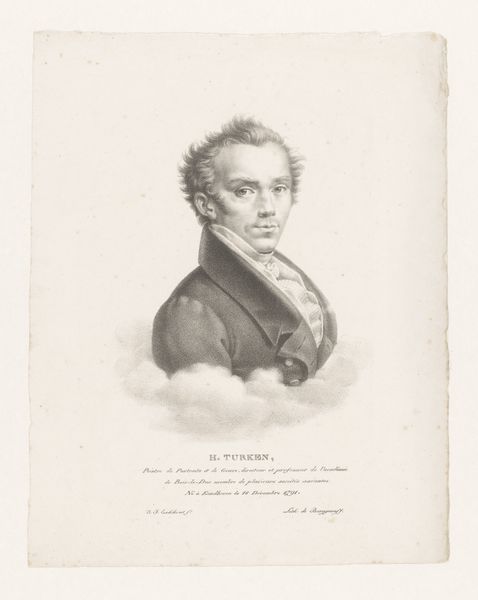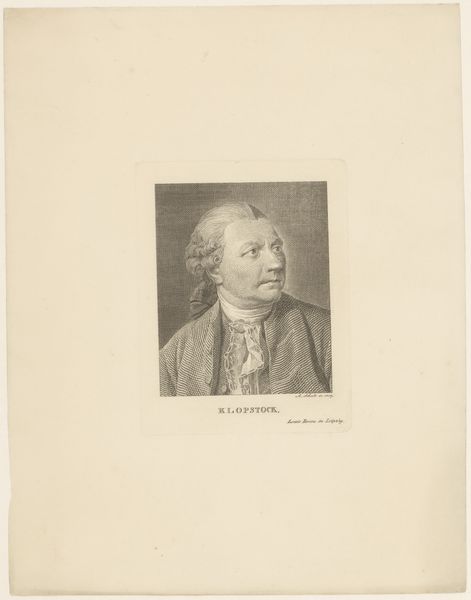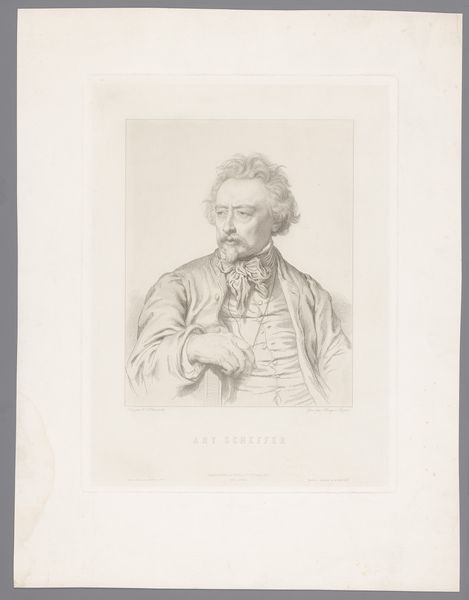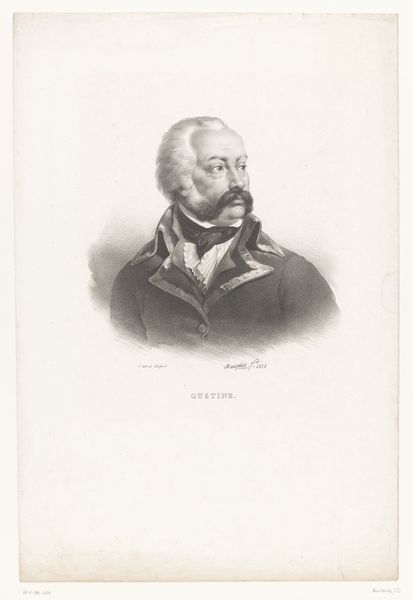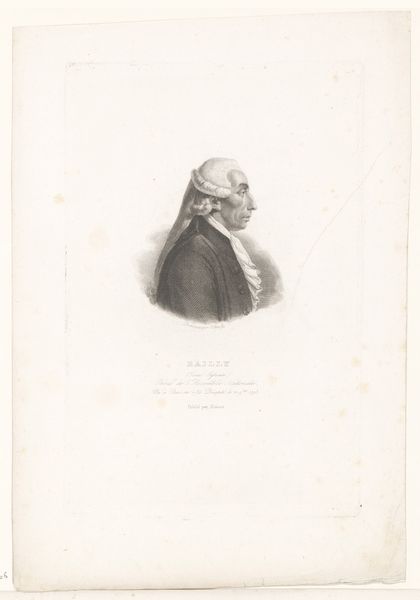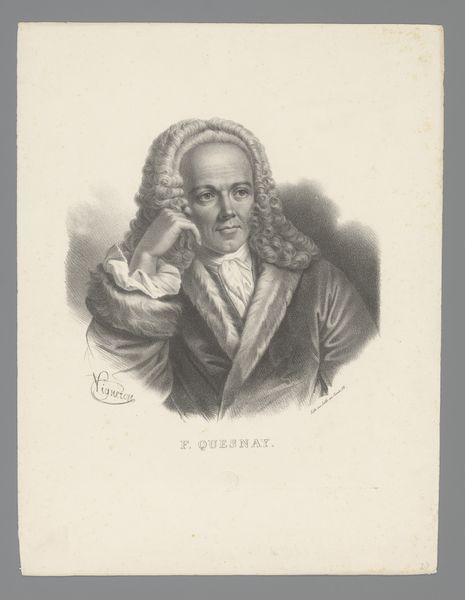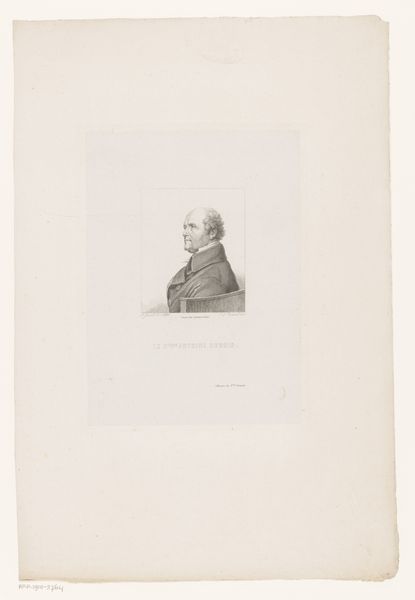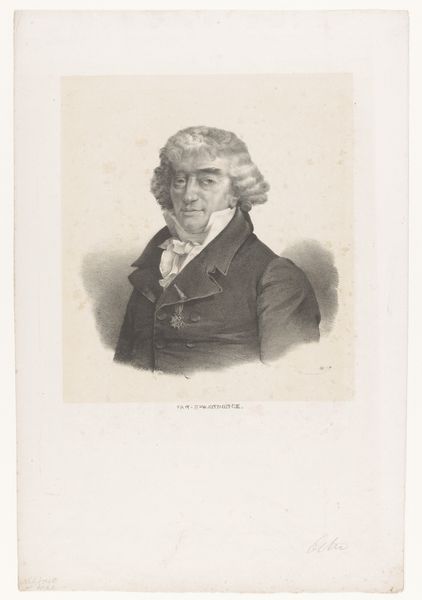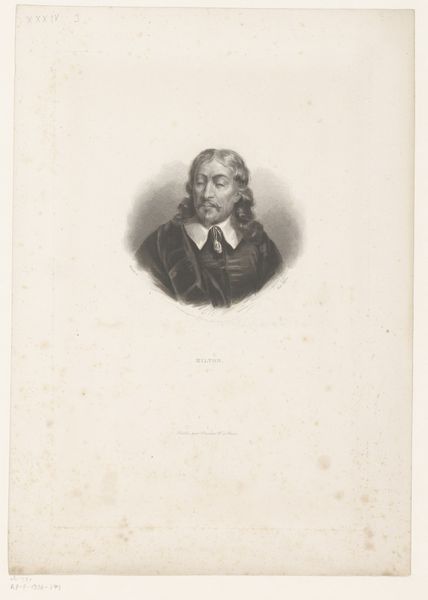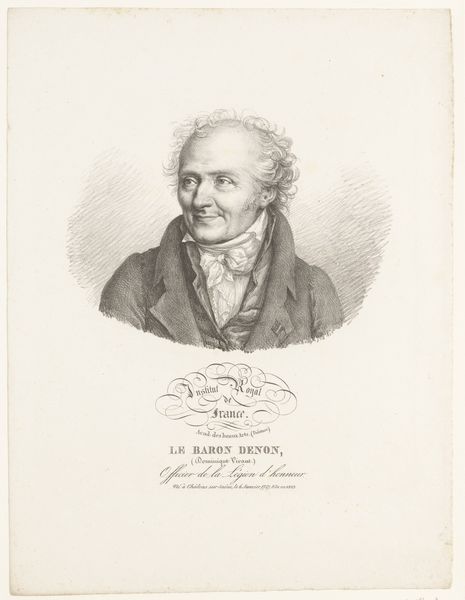
Dimensions: height 201 mm, width 130 mm
Copyright: Rijks Museum: Open Domain
Editor: Here we have a print from sometime between 1841 and 1910, L\u00e9opold Flameng's *Portrait of Georges-Jacques Danton*. It’s an engraving, giving it this crisp, detailed texture. I can’t help but wonder about this depiction of Danton. What can you tell me about this work, looking at it from a historian's perspective? Curator: It’s interesting that Flameng chose to create this in the later half of the 19th century, long after Danton’s execution during the French Revolution. It speaks to the ongoing fascination, and perhaps even a re-evaluation, of revolutionary figures within French society. The question becomes, why revisit Danton at this particular moment? Editor: That’s a good point. So, it’s less about Danton the man, and more about what he represented to late 19th-century France? Curator: Precisely. The style—neoclassical—adds another layer. It deliberately harkens back to the aesthetics of the revolutionary period itself, perhaps to lend the image a certain authenticity or grandeur. But consider: what political functions did prints and their imagery serve at the time of their making, not the subject’s lifetime? Editor: I see...it could be about shaping public opinion, or aligning with certain political movements that were inspired by the Revolution? Maybe even commenting on current sociopolitical affairs? Curator: Exactly. Images like these rarely exist in a vacuum. Think about who would have been commissioning, producing, and consuming this print. What were their motivations? The accessibility of printmaking meant a wider audience could engage with these historical figures, allowing for a democratized engagement with their political relevance. Editor: Wow, I had not considered all of these things about just an image. It's far more complex than I realized. Thank you for explaining that. Curator: My pleasure! Reflecting on art through its history always helps reveal deeper and richer stories.
Comments
No comments
Be the first to comment and join the conversation on the ultimate creative platform.
